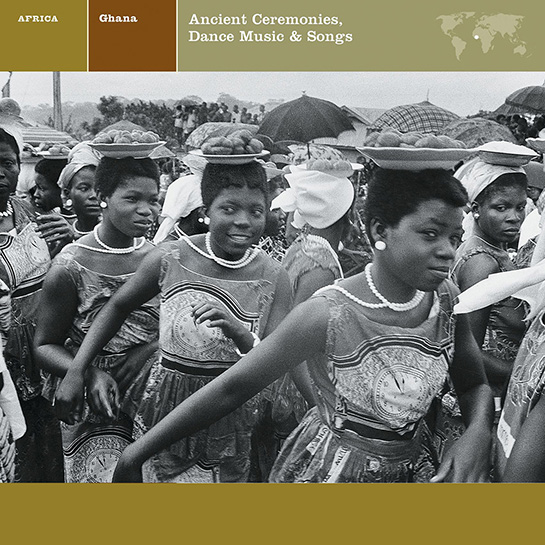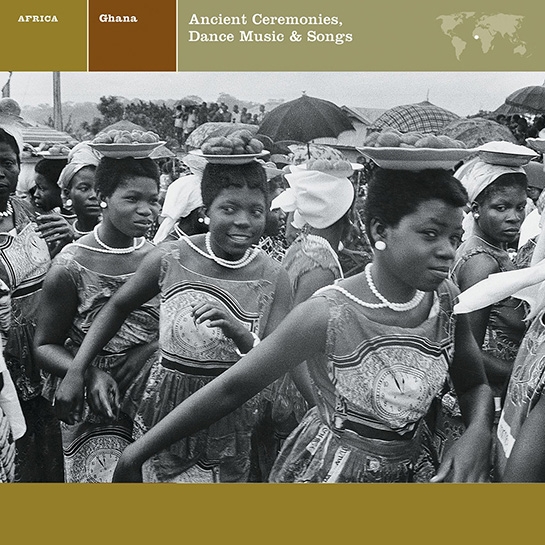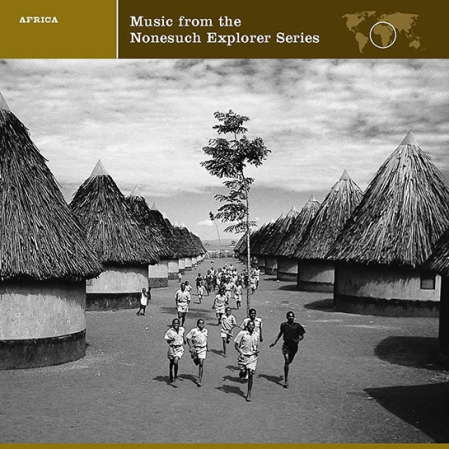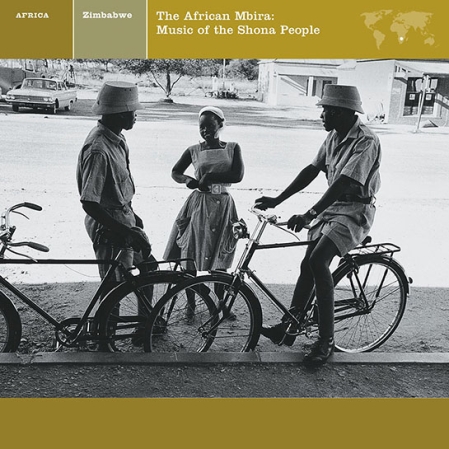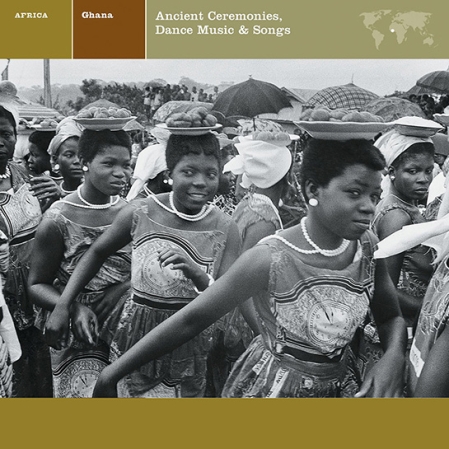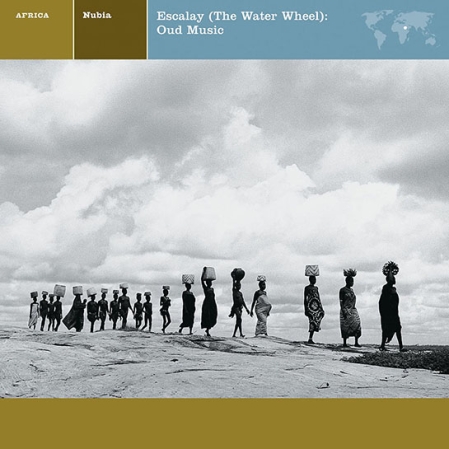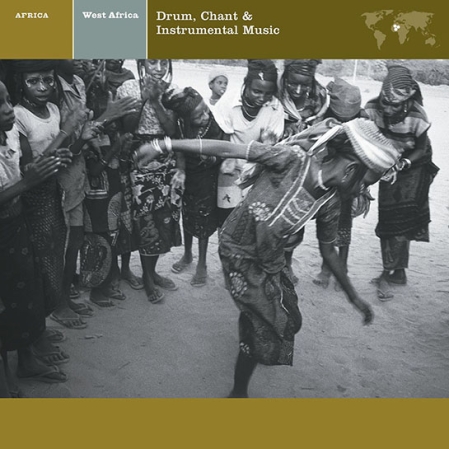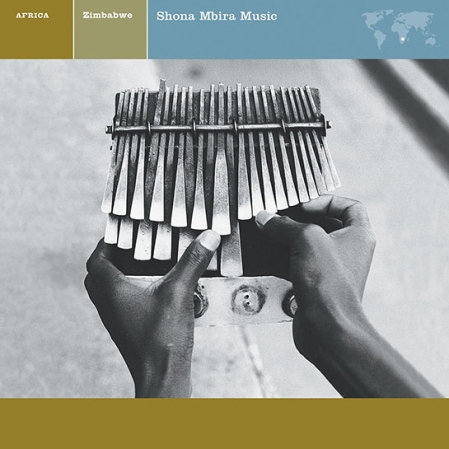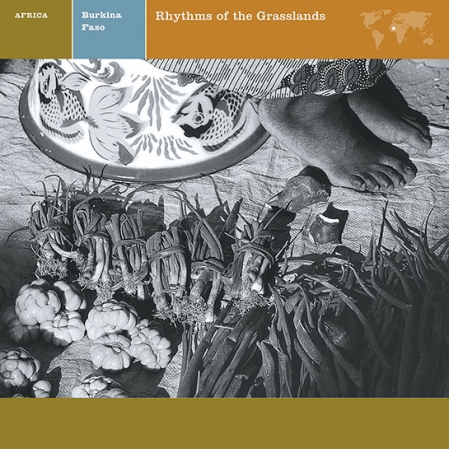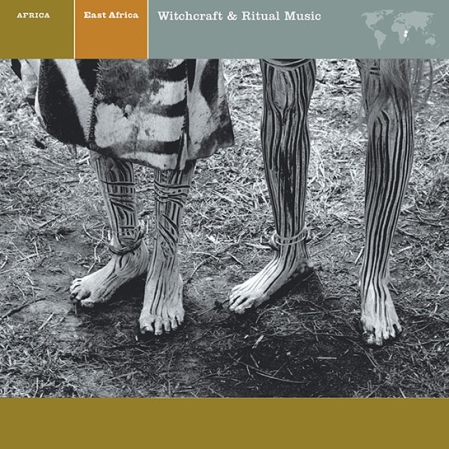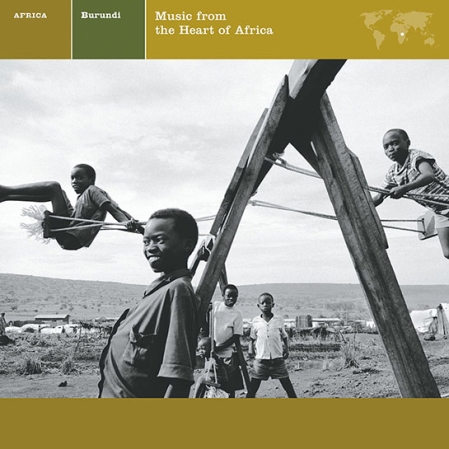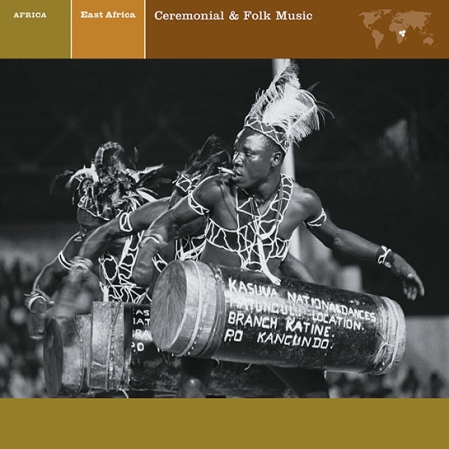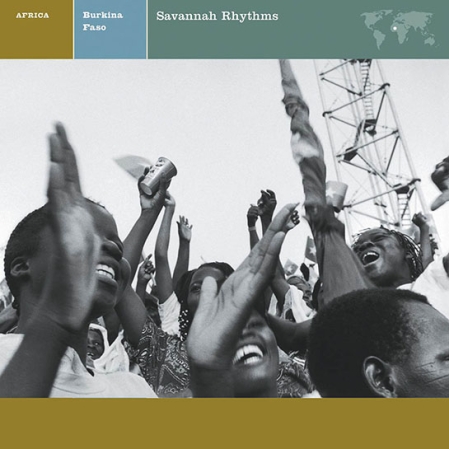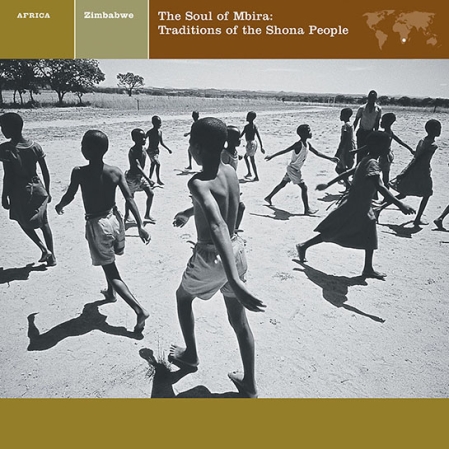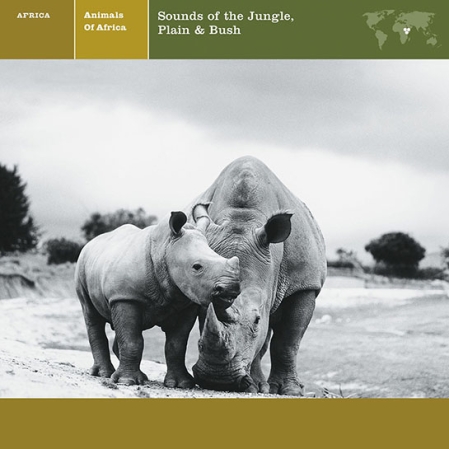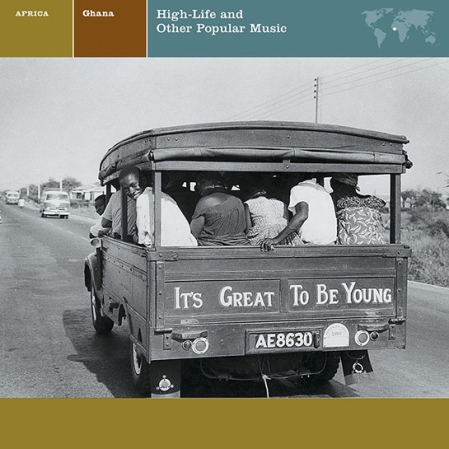The class of professional musicians known as griots is indispensable to Ghanaian rites and passages, as well as daily life. Through proverbs and songs, heard here, they preserve their local philosophy, code of conduct, and the events and people of a community’s past.
Originally released in 1979 as Africa: Ancient Ceremonies / Dance Music & Songs of Ghana
In order to provide a historical context for this recording, the liner notes that accompanied its original release have been reprinted in full below. The text has not been edited to reflect changes in general cultural perceptions or specific factual information that may have occurred since then. —Ed.
Situated in the tropical belt of West Africa, Ghana lies between Togo and the Ivory Coast on the Gulf of Guinea. It is a land of lush tropical beaches and rocky lagoons, with grasslands and forest bush in the Central and Northern Regions. Beginning about 1500, when European settlers first began exporting slaves and gold, the area became known as the Gold Coast, famed for the rich deposits of gold found mixed with the sand of its riverbeds. Only when granted its independence from the British Empire in 1957 was the new nation renamed after the ancient Ghana Empire, an advanced civilization that flourished over a large part of West Africa from 300 A.D. until 1240.
In Ghana, as in most of sub-Saharan Africa, music is an essential way of life. The numerous traditional ceremonies include music for dance and entertainment, along with dynamic percussive invocations and historical songs. The popularity of music as a way of passing time has produced a great variety of forms and styles as well as highly adept professional players; there is also great musical proficiency on the part of the general public. African musicians feel that they bring their instruments to life when they play them, just as God gives life to the musicians. Thus, individual instruments are believed to possess consciousness and are treated with much the same respect as that given to a living person.
A close relationship exists between language and music in Ghana (as in most of Africa). Instruments can convey specific messages by imitating the patterns of pitch change in the words of African languages. These patterns, almost unknown in European languages, are actually short melodic phrases comprised of two or three adjacent tones of a diatonic scale. Since the patterns are constant for each word, musicians are able to “talk” with their instruments by reproducing the pitches alone. The misunderstanding that might arise when two words have identical pitch-change patterns is overcome by elaboration. For instance, if the word for “river” had the same pattern as another word, and the meaning could not be discerned from the context of the phrase, the musician might clarify by saying, “the river, whose waters flow to the sea.”
There is a class of professional musicians known as griots who are indispensable to ceremonies and rites, indeed, to daily life. Among their many roles in the life of the community is that of historian, and they are famed for their infallible memories. In addition to recalling the significant events and people of a community’s past, griots also preserve and espouse the philosophical awareness and code of conduct of their community through proverbs and songs. Many griots lead a rather nomadic life, wandering freely, in total devotion to their art.
This album was recorded in the Brong-Ahafo, Eastern, Western, and Upper Regions of Ghana and reflects but a small part of the rich diversity of traditional musical forms alive in Ghana today
—STEPHEN JAY, 1979
PRODUCTION CREDITS
Originally released in 1979 as Africa: Ancient Ceremonies / Dance Music & Songs of Ghana (H-72082).
Recorded in Ghana by Stephen Jay
Technical production, editing and mastering: Robert C. Ludwig (Masterdisk Corp.)
Coordinator: Theresa Sterne
Re-mastered by Robert C. Ludwig
Design: Doyle Partners
Photography: © Marilyn Silverstone/Magnum Photos
1967
79711
